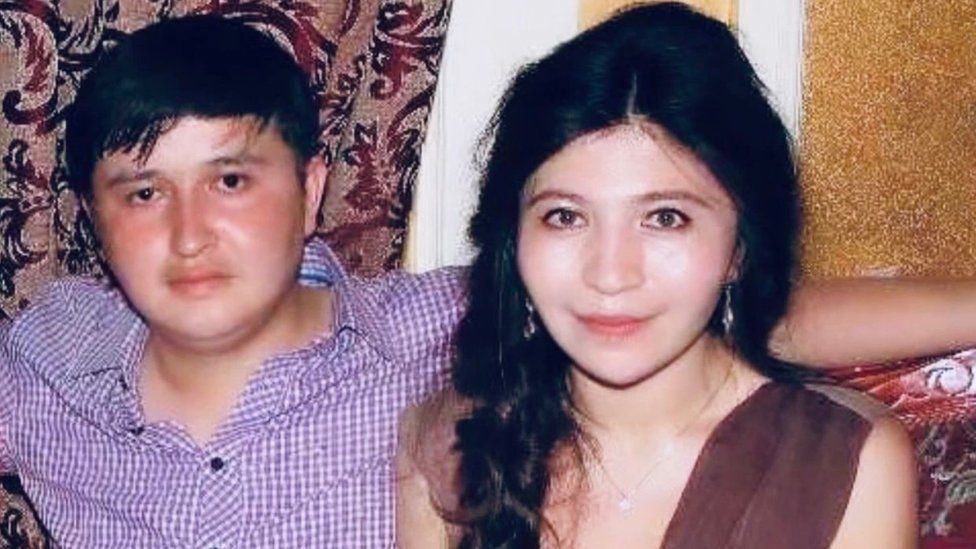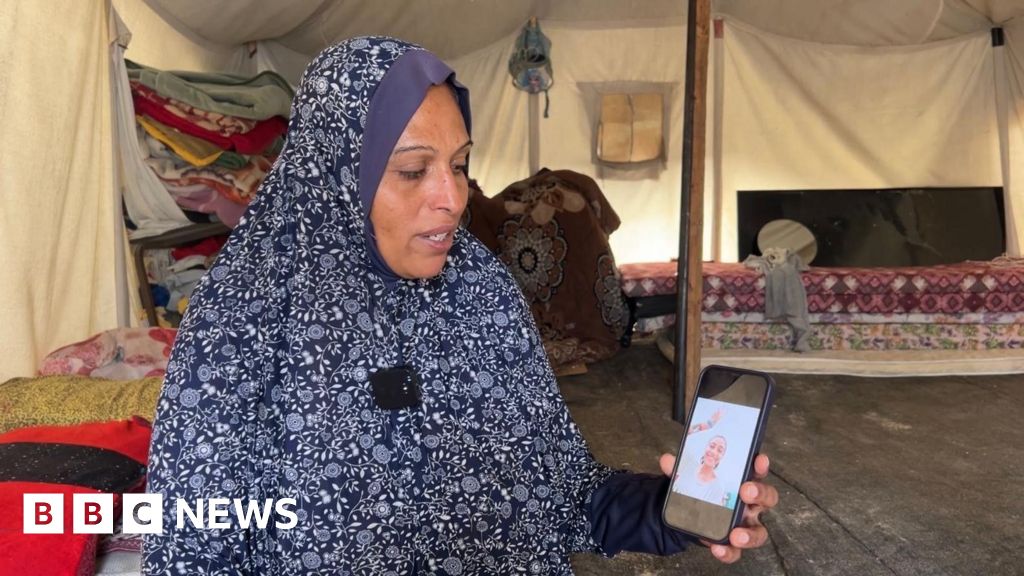ARTICLE AD BOX
By Elsa Maishman & Frances Mao
BBC News
 Image source, Rayhan Asat
Image source, Rayhan Asat
Rayhan Asat (R) with her brother Ekpar, who has been in a prison camp since 2016
A UN report accusing China of "serious human rights violations" and possible crimes against humanity in the detention and torture of Uyghur Muslims in Xinjiang has provoked anger from many around the world.
China has rejected the findings of the report, saying it is based on disinformation and is meant to "serve political objectives".
But what do Uyghurs think?
All those we spoke to were pleased that the report had been published, having feared it might not be after delays.
But they stressed this was just the beginning, and the report was the "bare minimum" which could be expected from the international community.
Mehray Mezensof, a Uyghur woman from Melbourne, Australia, felt a "huge pang of relief" when the report was released.
She was glad it recognised that serious human rights violations had been committed in Xinjiang, and highlighted China's use of "counter terrorism" and "counter extremism" as excuses, as this has been the case with her husband, Mirzat Taher.
Mr Taher, who intended to move to Melbourne to be with her, has instead been in and out of China's "education and training" camps for the past five years and was sentenced to 25 years in prison in 2021 for alleged separatist political activity.
Rahima Mahmut, who has been in the UK since 2000, is the UK director of World Uyghur Congress, an organisation promoting Uyghur human rights.
Reaction to the report among the Uyghur community has been "very emotional" she said, and very mixed - between relief that it has at least been published and recognises human rights violations, and disappointment that it does not go far enough.
Image source, Getty Images
Image caption,Rahima Mahmut is the UK director of World Uyghur Congress
"The report didn't say genocide," she said. "That is what exactly is happening, I believe the Chinese government is committing genocide against my community."
She added: "It took so long for the UN to publish this report. Five years is a very long time, especially for people who are suffering like myself. Even a day, an hour, is very hard to pass."
Ms Mahmut called on UK business and political leaders to take action with sanctions, and removing goods made by Uyghur forced labour from the supply chain.
"The international community, governments, cannot ignore this anymore," she said.
"If they fail to act it will be wilful complicity."
Nury Turkel, a US-based Uyghur attorney and chair of the United States Commission on International Religious Freedom., said the position of the international community was now "untenable" and the report must translate into "real action".
The report has cost lives by being delayed, he said, adding that the UN had been a "miserable failure" in addressing the issue.
"This is genocide, these are crimes against humanity that meet all the legal definitions in the book... it's not 'maybe', this is something that is already happening," he said.
"The UN telling a half-story is not helpful."
Image source, Getty Images
Image caption,Nury Turkel said the report was long overdue
In response to the report, UK Foreign Secretary Liz Truss said the UK would "continue to act with international partners to bring about a change in China's actions, and immediately end its appalling human rights violations in Xinjiang".
Mamutjan Abdurehim is a Uyghur man who has been separated from his family for seven years.
While living in Malaysia, his wife Muherrem Ablet returned to their hometown in Xinjiang with their two children to renew her passport. But it was later confiscated, and she was detained in a camp in 2017 while their children were left with Mr Abdurehim's parents.
Mr Abdurehim now lives in Australia, and has not had any communication with his family for five years.
He feels like a "dead person walking" without his family. "All I do is constantly think about how I can reach my family, how I can advocate for the release of my wife, and the reunion of my family," he said.
He welcomed the report, believing it would be a "major point of discussion" in future human rights council meetings. He hopes some countries may change their minds and lend support to the council statements to come out of these meetings.
But the language is quite "soft", he said, not labelling the camps internment or concentration camps.
Rayhan Asat, a human rights lawyer based in the US whose brother Ekpar Asat has been in a prison camp since 2016, reacted to the report with "complex emotions".
"This is the minimum that the UN can offer to the Uyghurs, given this has been seven years ongoing state violence against an entire ethnic population," she said.
"But this is just the start."
Ms Asat said she wanted to hear "directly from the lips of the UN secretary general" that China may have committed crimes against humanity, fearing that the departure of UN Human Rights Commissioner Michelle Bachelet just after publication has left it without a driving force.
She also wants the UN to set up an independent commission of inquiry, "to really monitor whether the Chinese government will carry out the recommendations laid out in the report - including releasing all these innocent people like my brother and many others who are suffering in the concentration camps".
She added: "We want accountability for the years of horrors that our family members have endured."
Ms Mezensof added that now the report has been published, the priority must be the release of her husband and all Uyghurs who have been arbitrarily detained.
"I want the world to stop taking a back seat and start being more proactive in ending the suffering of the Uyghurs," she said.
"They can no longer keep turning a blind eye especially now that the UN report has been released."
Image source, Mehray Mezensof
Image caption,Mehray Mezensof, whose husband Mirzat Taher is detained in a camp

 2 years ago
67
2 years ago
67








 English (US) ·
English (US) ·